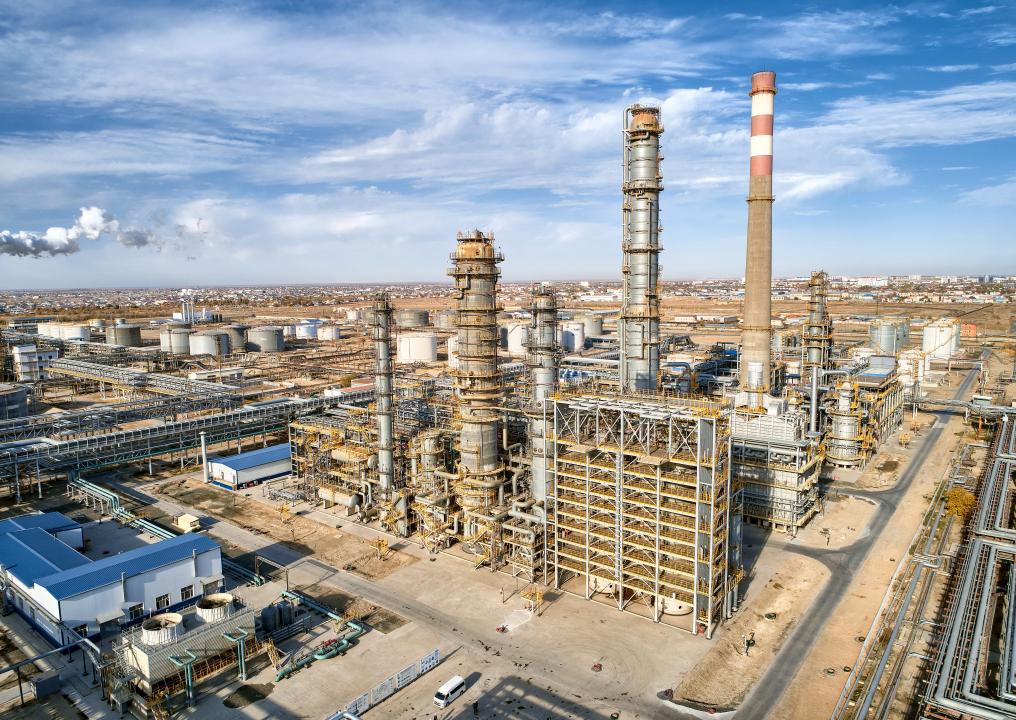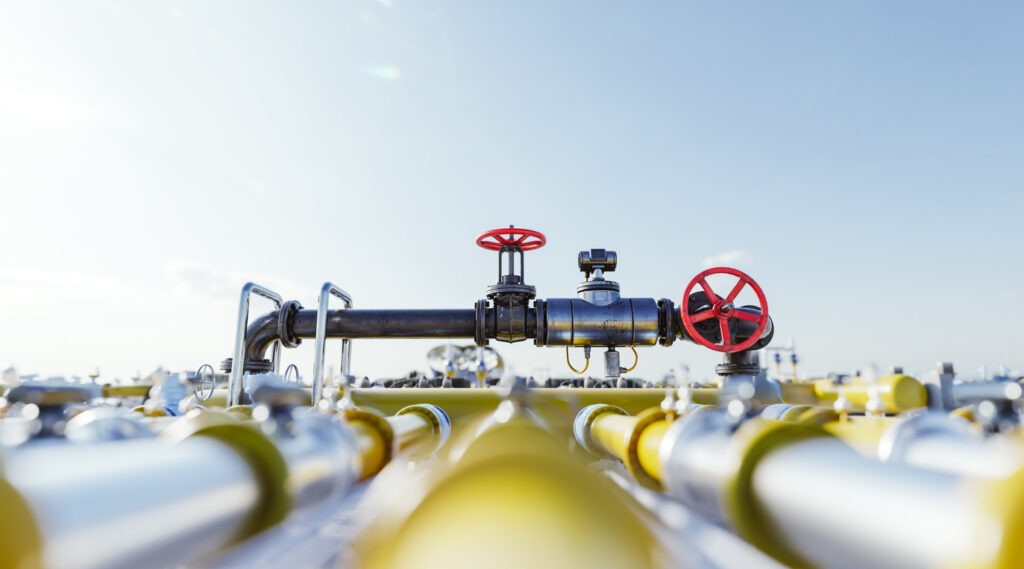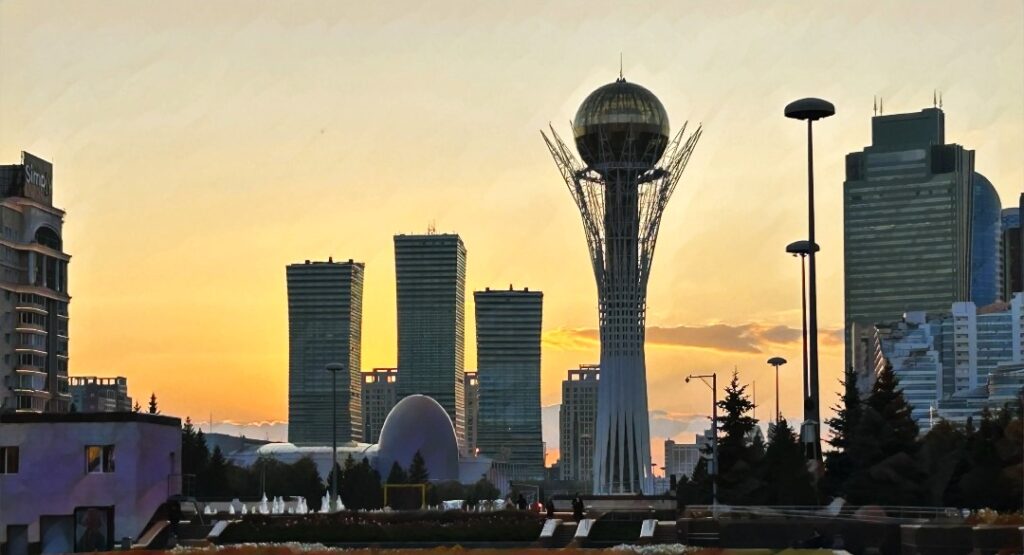BISHKEK (TCA) — The tense situation with petroleum products has not been decreasing for several months in Kyrgyzstan. According to the National Statistics Committee, over eleven months of this year, prices for gasoline have increased by 3.5 soms, or 8.8%, and for diesel fuel by 6.9 soms, or 17%. Supply of petroleum products from Russia and neighboring Kazakhstan could improve the situation.
Earlier this month, the Oil Traders Association of Kyrgyzstan informed about the delay in signing of an indicative balance of duty-free deliveries of fuel from Russia to Kyrgyzstan. The Association warned of a possible increase in retail prices for fuel by 2.5-3 soms per liter from January 1, 2019. The signing of the document was to take place back in October.
The local media predicted a gasoline collapse and discontent of the population, drawing an analogy with the situation in France, where the decision of the authorities to slightly increase gasoline prices turned into violent clashes of tens of thousands of citizens with the police this month.
Kyrgyzstan monthly imports an average of 70 thousand to 100 thousand tons of motor fuel. The country’s demand for petroleum products is 90% covered by supplies from Russia and Kazakhstan. The remaining 10% is mainly provided by the Junda refinery in the Chui province and the Jalal-Abad refinery in the south of the country.
Agreement reached
On December 6, the situation was safely resolved. Kyrgyzstan and Russia signed the indicative balance for duty-free supplies of fuel for 2019.
The volume of supply remained the same as for the last year — about 1 million tons, including 460 thousand tons of gasoline, 485 thousand tons of diesel fuel, 100 thousand tons of jet fuel, and 50 thousand tons of oil. However, the terms of the contract provide for a change in the volume of deliveries.
In early September, the Oil Traders Association submitted proposals to the 2019 balance with the following forecast indicators: gasoline — 485 thousand tons, diesel fuel — 580 thousand tons, and jet fuel — 130 thousand tons. But the Russian side did not agree to increase the amounts.
Rating
Thanks to the signed document, conditions have been created for the further stable and reliable duty-free supply of petroleum products, the Association concluded, adding that Kyrgyzstan ranks first in terms of cheap fuel among the countries dependent on its import.
According to the GlobalPetrolPrices rating, Kyrgyzstan ranks the 22nd among 181 countries in terms of the cost of gasoline ($0.67 per liter) and ranks first in terms of cheap fuel among import-dependent countries. All other countries in the top twenty are producers and exporters of oil, including Kazakhstan, Turkmenistan, the United Arab Emirates, Iran, and Saudi Arabia.
The average price of gasoline around the world is $1.12 per liter. However, there is substantial difference in these prices among countries. As a general rule, richer countries have higher prices while poorer countries and the countries that produce and export oil have significantly lower prices. One notable exception is the U.S. which is an economically advanced country but has low gas prices, the GlobalPetrolPrices said.
Agreement with Kazakhstan
Domestic oil traders addressed the President of Kyrgyzstan, drawing attention to the difficult situation with petroleum products.
Official deliveries of petroleum products from neighboring Kazakhstan would help resolve the situation. Kazakhstan’s refineries have been modernized and there is a permanent surplus of light petroleum products. Negotiations between the governments of Kyrgyzstan and Kazakhstan on the supply of petroleum products have been unsuccessful for several months.
Kyrgyzstan’s business community believes that the agreement between Kazakhstan and Kyrgyzstan will be beneficial to Kyrgyzstan. Competition between Russian and Kazakh producers will entail a lower purchase price for Kyrgyz oil traders in the long term.
Daniyar Mederov, Deputy Executive Director of the International Business Council based in Bishkek, explained why it is vital to conclude this agreement. Earlier, Kazakhstan banned the export of petroleum products due to a shortage of fuel on its own market. After the recent modernization of the country’s three refineries, there is a permanent surplus of gasoline production in Kazakhstan. There is a need to export, and Kyrgyzstan has to take advantage of this situation. Fuel deliveries from Kazakhstan would help to lower retail fuel prices in Kyrgyzstan, Mederov said.
The draft agreement, which is currently being considered in Kyrgyzstan, includes petroleum and petroleum products, gasoline and diesel fuel. On average, Kyrgyzstan’s need is about 500 thousand tons of diesel fuel per year, and 70% of diesel fuel delivered to Kyrgyzstan from Russia corresponds to the Euro 2 ecological class.
In Kazakhstan, a ban has been imposed on the Euro 2 products, and many mini-refineries can no longer sell their products in the local market. It is estimated that up to 25 thousand tons of diesel fuel per month from Kazakhstan’s mini-refineries could come to Kyrgyzstan’s market. Prices for this diesel fuel are up to 10% lower than those from Russia. Diesel fuel from Kazakhstan’s giants could also come to Kyrgyzstan, but in smaller volumes than gasoline, Mederov said.
The gasoline supplies from Kazakhstan will also affect the environment in Kyrgyzstan, Kyrgyzstan’s business community believes. Kazakhstan will supply gasoline not lower than Euro 4 environmental class while up to 40-50% of gasoline from Russia is of Euro 2 and Euro 3 environmental class.
The logistical location of the Shymkent refinery in south Kazakhstan is very convenient for Kyrgyzstan’s gas station networks. A shorter delivery, 4-5 days compared to 15-20 days from Russian refineries, will help significantly reduce costs and increase the profitability of local legal oil traders. As a result, the state budget will receive more income taxes from local companies.
Oil smuggling
The situation with fuel is aggravated by an increase in the smuggling of petroleum products in Kyrgyzstan.
A large flow of contraband fuel flowed to the country through border areas in the northern Talas province bordering Kazakhstan. The volume of smuggling is large — up to 30% of gasoline consumption in the country, which significantly affects the reduction of tax payments to the state.
Last week, the Financial Police of Kyrgyzstan detained over 39 tons of smuggled fuel imported into the Chui oblast.
The difference in the price of Kazakh and Russian gasoline is significant. According to the market participants, 8–10 thousand tons are illegally imported monthly, which corresponds to 25% of Kyrgyzstan’s monthly consumption of high-octane gasoline.
The fact is that Kazakhstan’s fuel storages are now full, and there is a risk of stopping the Kazakh refineries due to overstocking. Kazakhstani fuel manufacturers are forced to sell their products to everyone who can buy, including possible unscrupulous market participants.
If the agreement with Kyrgyzstan is signed and the official supply of gasoline starts, Kazakhstani producers will be interested in cutting off the illegal flow.
Conclusion
The energy market has a significant impact on inflation. The more stable the fuel market, the easier it is to control the inflation processes in the economy.
Kazakhstan will not be able to replace Russia for fuel supplies, but it will expand Kyrgyzstan’s fuel market.
The longer the signing the agreement is postponed, the more likely it is that the surplus of Kazakhstani products will be used in the markets of Uzbekistan, Tajikistan and Afghanistan.









